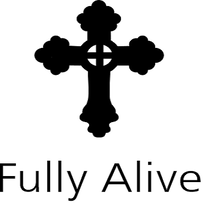|
by Erik Ritland
"The Publican didn’t say “I’m a worthless worm piece of garbage,” because as a child of God, he isn’t. He said, “be merciful to me, a sinner.” This is what we are called to do every day." Fully Alive’s Lenten Scriptural Commentary helps Christians get more out of Lent by taking God’s word seriously. Mostly avoiding personal stories and anecdotes, our commentary dives deeply into the scripture readings for each day and applies them to the broader context of Lent. We use the daily Mass readings from the Catholic lectionary. If possible, read each passage slowly, taking in each word. If you find that you’ve hurried through a reading, read it over a few more times. Let the words reverberate in your heart. After you’ve let it sink in, read our Lenten Scriptural Commentary. Saturday of the Third Week of Lent The prophet Hosea speaks of God’s comforting healing and just judgement, in addition to explaining what it is that God desires. Jesus describes what true sacrifice in His Kingdom looks like. Readings: Hos 6:1-6/Lk 18:9-14 Click here to read the complete text from the USCCB website For it is love that I desire, not sacrifice, and knowledge of God rather than burnt offerings. (Hos. 6:6) After a poetic section where Hosea describes how God will “bind us” and “heal our wounds” if we return to Him, he describes God’s judgement as restorative (“He will come to us like rain, like spring rain that waters the earth”). When God judges us, and the world, it will not be something to dread. It will set all things right, will be refreshing. Hosea 6:6 could be the slogan of Jesus’ ministry. His fulfillment of God’s plan teaches us that God wants us to live a life of love and sacrifice for Him, for those around us, and for the world. This is the fulfillment of the law and the prophets that Jesus continually talks about in the Gospels. For everyone who exalts himself will be humbled, and the one who humbles himself will be exalted. (cf. Lk 18: 9-14) The beginning of the Parable of the Publican and the Pharisee begins provocatively: "Jesus addressed this parable to those who were convinced of their own righteousness and despised everyone else." We all know these people. More importantly, we all are these people. Both men approach the temple to pray. The Pharisee brags about how he does a lot of righteous works and is so much better than other people (“'O God, I thank you that I am not like the rest of humanity – greedy, dishonest, adulterous — or even like this tax collector”). The publican (tax collector), on the other hand, knows his need for God’s help, and humbly begs for God’s mercy. As Jesus says, “the latter went home justified, not the former.” Humility is not self-loathing, it is simply understanding who and what you truly are, nothing more, nothing less. The Publican didn’t say “I’m a worthless worm piece of garbage,” because as a child of God, he isn’t. He said, “be merciful to me, a sinner.” This is what we are called to do every day, and to especially remember during Lent. Erik Ritland is a writer and musician. The founder of Fully Alive Christian Media, he also created The Minnesota Sport Ramble and is a writer and copy editor for Music in Minnesota. He was Lead Staff Writer for Minnesota culture blogs Curious North and Hometown Hustle. Reach him via email.
0 Comments
Leave a Reply. |
Authors
Erik Ritland received his MA in Theology in 2017. He's the founder and content manager of Fully Alive Christian Media and Rambling On, copy editor and writer for Music in Minnesota, and an acclaimed songwriter. Archives
April 2019
Categories |

 RSS Feed
RSS Feed
